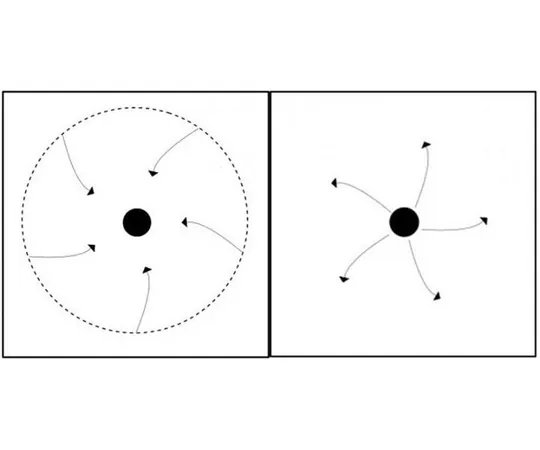
Unlocking the Secrets of the Universe: Primordial Naked Singularities Could Transform Our Understanding of Quantum Gravity
2025-01-13
Author: Rajesh
Introduction
Researchers in India are making waves in the cosmic science community by proposing a radical new hypothesis that could reshape our knowledge of the universe and its mysteries. Professors Pankaj Joshi from Ahmedabad University and Sudip Bhattacharyya from the Tata Institute of Fundamental Research (TIFR) suggest that the early universe may have given birth to extraordinarily dense, point-like entities known as primordial naked singularities (PNaSs). This groundbreaking theory is expected to be published in the highly regarded Journal of Cosmology and Astroparticle Physics (JCAP).
The Origins of the Universe
The origins of the universe have long puzzled scientists. The Big Bang Singularity created conditions of such high temperature and density that they defy human understanding. Notable physicist Stephen Hawking, along with predecessors like Yakov Zeldovich and Igor Novikov, posited that quantum fluctuations could have sparked the gravitational collapse of ultra-dense matter, leading to the formation of primordial black holes (PBHs) — a key component believed to make up dark matter.
Understanding Black Holes
Traditionally, black holes as described by Einstein's General Relativity are shrouded in mystery. They possess no solid surface and contain matter squeezed into nearly infinite density, defined by an event horizon — a point of no return for anything entering, including light. Hence, their singularities are fundamentally unobservable.
The Mystery of Dark Matter
While the scientific community has diligently studied primordial black holes for potential dark matter contributions, the nature of dark matter still remains one of the universe's greatest enigmas. Researchers are fervently exploring the implications of PBHs, piecing together a cosmic puzzle that consists of five times more mass than the visible universe.
Introducing Primordial Naked Singularities
In their innovative research, Professors Joshi and Bhattacharyya introduce primordial naked singularities, which starkly contrast with traditional black holes due to their lack of an event horizon. This intriguing characteristic makes PNaSs observable, potentially offering scientists a rare and valuable window into the realm of ultra-strong gravity conditions that dominate the early universe.
Implications for Quantum Gravity
Quantum gravity, the field aiming to unify quantum theory with Einstein’s gravitational principles, stands to benefit vastly from the study of these observable phenomena. If PNaSs represent a significant portion of dark matter, this could revolutionize our understanding of the universe's fabric and afford us tangible mechanisms through which to investigate its most fundamental properties.
Exploring Cosmic Evolution
Moreover, the existence of primordial naked singularities suggests that the cosmos may host accessible entities characterized by near-infinite density — some as old as the universe itself. Such a finding would not only illuminate our current cosmological models but also enhance our understanding of cosmic evolution, acting as natural laboratories where the theories of quantum gravity can be tested against unprecedented phenomena.
Conclusion
As researchers delve deeper into the implications of PNaSs, the prospect of unlocking the grand secrets of the universe increasingly tantalizes scientists and laypeople alike. Are we on the verge of a paradigm shift that could radically alter our conception of everything from dark matter to the very fabric of reality? Stay tuned, as the revelations from this fascinating field may just be the tip of the iceberg!
 Brasil (PT)
Brasil (PT)
 Canada (EN)
Canada (EN)
 Chile (ES)
Chile (ES)
 Česko (CS)
Česko (CS)
 대한민국 (KO)
대한민국 (KO)
 España (ES)
España (ES)
 France (FR)
France (FR)
 Hong Kong (EN)
Hong Kong (EN)
 Italia (IT)
Italia (IT)
 日本 (JA)
日本 (JA)
 Magyarország (HU)
Magyarország (HU)
 Norge (NO)
Norge (NO)
 Polska (PL)
Polska (PL)
 Schweiz (DE)
Schweiz (DE)
 Singapore (EN)
Singapore (EN)
 Sverige (SV)
Sverige (SV)
 Suomi (FI)
Suomi (FI)
 Türkiye (TR)
Türkiye (TR)
 الإمارات العربية المتحدة (AR)
الإمارات العربية المتحدة (AR)